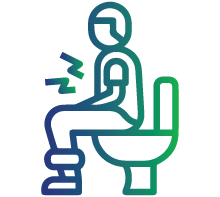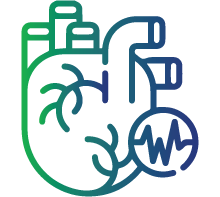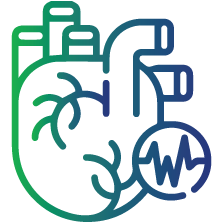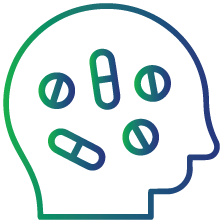
Homocysteine Test
Homocysteine
Homocysteine is one of several amino acids in our body. Together, amino acids make a protein. B vitamins (mostly B6, B9, and B12) help in the breakdown of this amino acid. Normally, your homocysteine levels are low. Any deficiency in these vitamins may result in an increase in homocysteine levels in our blood, which can increase the risk of getting a heart attack, stroke, or other heart-related diseases.
The homocysteine test is a blood test that measures the levels of homocysteine present in your blood.
Other names of Homocysteine tests are Total homocysteine, plasma total homocysteine.
Symptoms of Vitamin B deficiency
A few symptoms of Vitamin B deficiency may include

Depression

Diarrhoea

Fatigue

Heart palpitations

Numbness or tingling in fingers

Balancing problems

Scaly skin

Shortness of breath

Swelling of tongue or redness
What is the homocysteine test used for?
The Homocysteine test is indicated to:
1
-
· Find any deficiencies related to vitamins B6, B12, or folic acid
2
-
· Diagnose homocystinuria (A rare inherited disorder that interferes with your body’s ability to break down a protein from the food you eat)
3
-
· Understand the risk of heart disease and stroke
Who should get tested?
Individuals experiencing the following symptoms should get tested for homocysteine

Dizziness

Fatigue

Headache

Heart palpitations

Change in skin or fingernail colour

Tongue/mouth sores

Tingling in hands or feet

Malnourished

Drug addiction

Alcohol consumption
Test preparation
Your healthcare provider will insert a small needle into a vein in your arm and collect a few mL of blood into the sterile test tube. This entire procedure will usually take less than a few minutes.
You may need to fast for about 8-12 hours before taking the homocysteine test. Please tell your healthcare provider if you are taking any medications such as diuretics, anti-psychotics, steroids, etc
Interpretation of results
Normal values: <15.1 µmol/L (micromole per litre)
Deviations from normal value:
Higher than normal values of homocysteine may be due to
· Deficiency in getting enough vitamins, either from diet or through absorption
· Chronic alcoholism
· High risk of heart disease or stroke
· Homocystinuria
Higher values of homocysteine could also be due to medical conditions such as osteoporosis, chronic kidney disease, hypothyroidism, or dementia (a progressive loss of memory)
FAQs
What is the turnaround time (TAT) for the Homocysteine test?
The test results for the homocysteine test are usually available within 1-2 working days after the sample collection. However, it could take a little longer at times
Are there any risks associated with the Homocysteine test?
No, there are no potential risks associated with the Homocysteine test. However, all blood tests involve negligible risks, such as feeling a slight sting or bruise at the site of sample collection. It usually resolves within a few minutes to a few hours. Rarely, the site could become infected
Do homocysteine levels increase with age?
Yes, homocysteine levels certainly increase with age. It could be due to several reasons, including
· Deficiency of B vitamins and folic acid in their body
· Metabolic disorders such as diabetes mellitus, heart conditions, kidney diseases, and bone disorders.
A few medications, such as methotrexate and antiepileptic drugs, could also cause an increase in homocysteine levels
Is it possible to get rid of high homocysteine levels in my blood?
Yes, you can reduce the elevated homocysteine levels in your blood. Vitamins like B6, B12, and B9 are believed to help break down homocysteine in your body. Thus, increasing these vitamins in your diet may help lower your homocysteine levels
Can I take this test if I've been fasting for four hours?
No. It is always advisable to undergo the homocysteine blood test in a fasting state of about 8–10 hours. Anything less than this duration may affect the accuracy of the test results

